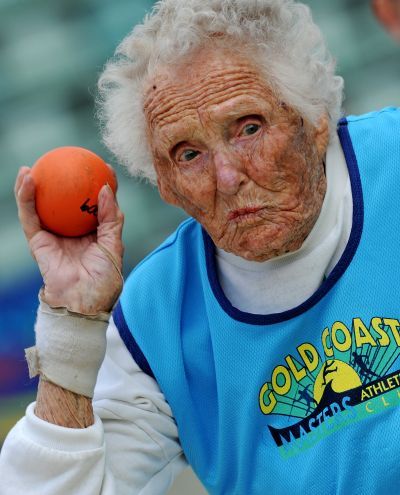Errant gene may make some people age faster: study

Your support helps us to tell the story
From reproductive rights to climate change to Big Tech, The Independent is on the ground when the story is developing. Whether it's investigating the financials of Elon Musk's pro-Trump PAC or producing our latest documentary, 'The A Word', which shines a light on the American women fighting for reproductive rights, we know how important it is to parse out the facts from the messaging.
At such a critical moment in US history, we need reporters on the ground. Your donation allows us to keep sending journalists to speak to both sides of the story.
The Independent is trusted by Americans across the entire political spectrum. And unlike many other quality news outlets, we choose not to lock Americans out of our reporting and analysis with paywalls. We believe quality journalism should be available to everyone, paid for by those who can afford it.
Your support makes all the difference.Certain people carry a genetic variant that could shave three or four years off their life, according to a new study.
It is the first time that a gene has been directly linked to the ageing process, scientists from Britain and The Netherlands reported in the journal Nature Genetics.
"What our study suggests is that some people are genetically programmed to age at a faster rate," said Tim Spector, a professor at King's College and co-leader of the research.
"The effect was quite considerable in those with the variant, equivalent to between three-to-four years of 'biological ageing'," he said.
The variant may make those people more vulnerable to age-related maladies, including heart disease and some types of cancer, the study concluded.
There are two different ways in which people grow old, recent research has shown.
Chronological ageing, the same for every one, is measured in years.
The pace of biological ageing, however, can vary from one person to the next, and occurs at the level of individual cells.
A critical component of biological ageing are tiny structures called telomeres, which sit like tiny protective caps on the tips of chromosomes.
Every time a cell divides, the telomeres get worn down. Eventually, when the telomeres are worn beyond a certain point, cell death - part of the natural ageing process - is triggered.
Environmental factors such as smoking tobacco, exposure to toxins, and unhealthy diet can also accelerate biological ageing.
"We found that those individuals carrying a particular genetic variant had shorter telemoeres, that is, (they) looked biologically older," explained Nilesh Samani, a professor at the University of Leicester and co-leader of the study.
"Given the association of shorter telomeres with age-associated disease, the finding raises the question whether individuals carrying the variant are at greater risk of developing" age-linked diseases, he said.
Scientists scanned more than 500,000 genetic variations across the entire human genome hunting for matches in people who had short telomeres.
The culprit, it turned out, was a variant near a gene called TERC, which had previously been linked to accelerated ageing in mice.
Australian-American cell biologist Elizabeth Blackburn, who shared the Nobel Prize in Medicine last year for breakthrough research on telomeres, likened telomeres to "tips of shoelaces" - when you lose the little plastic end, the lace starts to fray.
mh/km
Join our commenting forum
Join thought-provoking conversations, follow other Independent readers and see their replies
Comments